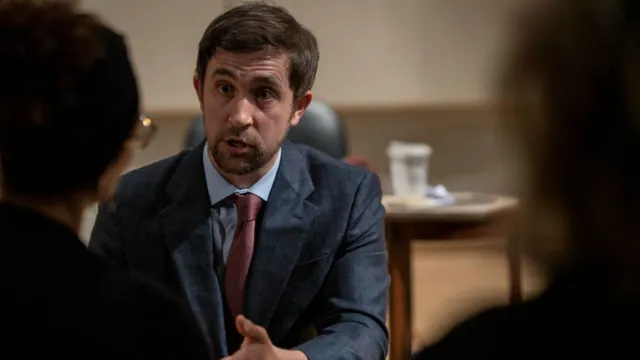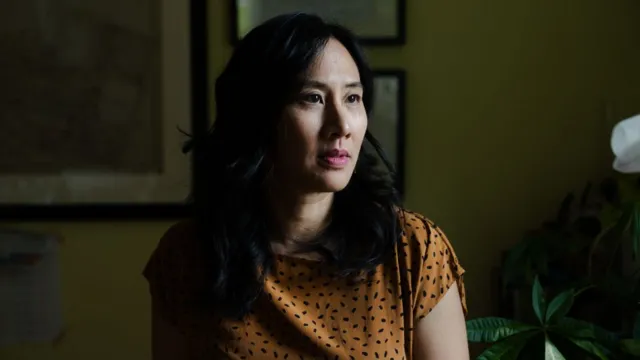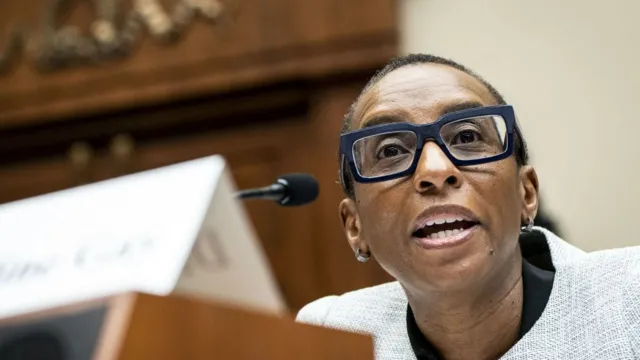Claudine Gay’s resignation from her role as president of Harvard University is being hailed as a notable triumph by conservatives who opposed her on ideological grounds since she assumed the position in July 2023. While allegations of plagiarism in her doctoral thesis played a role in her departure from the university’s top position, her exit extends beyond a mere academic dishonesty scandal.
Dr. Gay faced criticism in December for her involvement in a congressional hearing panel addressing antisemitism on college campuses. The panel’s lukewarm and bureaucratic responses, including those from Dr. Gay, regarding the handling of calls for Jewish genocide led to the resignation of University of Pennsylvania president Liz Magill. Despite this incident, Harvard initially expressed continued support for Dr. Gay’s presidency. However, the controversy persisted.
For her conservative detractors, Dr. Gay, who is black, embodies much of what they disdain about contemporary American higher education. They perceive it as being dominated by a left-wing ideology that prioritizes ethnic and gender diversity over academic rigor.
Republican presidential candidate Vivek Ramaswamy, a Harvard graduate, took to social media to express his views on Claudine Gay’s resignation, describing it as a thinly veiled exercise in race and gender during her selection. Ramaswamy criticized the decision, suggesting that it was influenced by considerations beyond merit.
New York Times columnist Bret Stephens joined the critique, highlighting Dr. Gay’s academic record, which he characterized as relatively thin, with no published books and only 11 journal articles. Stephens decried what he termed the “social justice model of higher education,” expressing concerns about the priorities in academia that focus on social justice issues over traditional scholarly achievements.

Right-wing activist Christopher Rufo helped launch the Dr Gay plagiarism story
He asserted that the “intellectual decay” in American higher education would persist until universities reverted to the notion that their primary purpose is to identify, nurture, and liberate the best minds, rather than engineering social utopias.
The allegations of plagiarism leading to Dr. Gay’s resignation were brought to light by Christopher Rufo, a right-wing activist known for his involvement in the cultural controversy over the purported teaching of Critical Race Theory in U.S. schools. Rufo outlined a strategy on social media in December, aiming to launch the Claudine Gay plagiarism story from the right and subsequently introduce it into left-leaning media to gain broader attention.
Media outlets, including the New York Post and the Washington Free Beacon, amplified Rufo’s efforts, publishing details of a new anonymous complaint filed with Harvard that presented additional evidence of alleged plagiarism in Dr. Gay’s published work. In her resignation letter, Dr. Gay mentioned being subjected to personal attacks and threats fueled by racial animus, emphasizing the need to address bias and hate comprehensively.
This sentiment found resonance on the left, with novelist Celeste Ng expressing the view that bad-faith actors, feigning concern about antisemitism, were willing to exploit women of color, particularly black women, as scapegoats for broader systemic issues. Ng concluded that those invested in maintaining such systemic problems would comply with this approach.

On social media, author Celeste Ng accused Harvard of caving "to fascists"
The recent Harvard controversy reached its apex with Dr. Gay’s resignation, marking a significant point in the broader conservative effort to challenge and potentially replace liberal-dominated higher education institutions. In Florida, Governor Ron DeSantis, a current Republican presidential candidate, took steps to overhaul the leadership of the New College of Florida. This included discontinuing diversity and inclusion programs, dismissing faculty members, and appointing right-wing activists, including Mr. Rufo, to the board of trustees, aiming to establish a conservative alternative to modern liberal arts colleges.
Former President Donald Trump, outlining his “Agenda 47” plan for a potential second term, has called for changes in the accreditation process of U.S. universities, with a focus on “defending the American tradition and Western civilization.” Additionally, he pledged to end equity programs, enforce reductions in universities’ overhead costs, and impose taxes on the endowments of non-compliant schools.
While Harvard may eventually replace Dr. Gay with an individual sharing a similar academic and political disposition, someone committed to promoting diversity within the student body, the conservative camp has achieved a significant victory by ousting the president of one of the nation’s most prestigious universities. This victory, particularly notable for Harvard’s role in the recent Supreme Court battle over racial preferences in admissions, provides conservatives with a substantial foundation for further initiatives.

